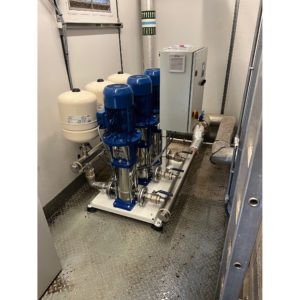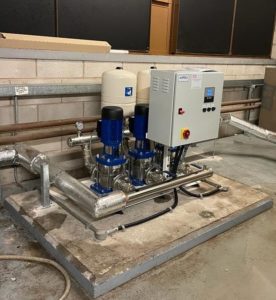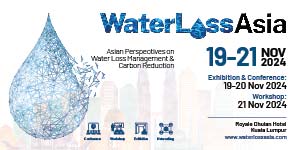Emerging Micropollution Solutions will Help Tackle Contaminants

Dr. Fabio Bacci (Image source: British Water)
As governments, activists and consumers become increasingly aware of the environmental and health impacts ofmicropollutants in water sources, the sector needs torespond quickly and reliably. To support the sector in rising to these challenges, British Waterhosted its second annual conferenceon micropollutants in water and waste water on 28 March 2023 in Manchester. Witha keynote speech fromProfessor John Fawell, former chief scientist at the National Centre forEnvironmentalToxicology,the conference focussed on three critical areas: legal frameworks, bio resources and commercial considerations. Legalchanges Recent changes in the European legal framework have targeted micropollutants in terms of environmental quality standards, surveillance and, lately, a roadmap of obligations for quaternary treatment. The conference explored these changes and how they will be the pillars of an emerging economy addressing micropollutants. Biosolids can no longer be deemed waste and must be recognised as assets. Recovery of physical resources and generation of energy are classic examples of yields offered by bioresources. Speakers addressed how micropollutants accumulated in sludge are obstacles to innovation andmust be considered during the development of solutions. As the regulatory regime continues to target micropollutants, the market is increasing ly responding with novel solutions. The conferenceprovideda platform for technology providersto explain and showcase their achievements in this emerging industry.Regulatory actionThe welcome increase in regulatory action dominated the agenda,and the importance oflegislative developments was clearly represented by the contribution of DrinkingWaterInspectorate’sprincipalinspector, Ann Bunting.The engagement of regulators in industry-led events is critical and, for the second year in a row, the DWI demonstrated their unwavering commitment to the public discourse onmicropollutants. While regulatory and industry responses need to prioritise those classes of micropollutants posing greater risk to the environment and human health, proactive action is required to ensure the water sector is prepared to address this timely issue. The conference offered an opportunity for the industry to seize the moment and demonstrate itis ready and willing to work closely with the supply chain, business and government in the development of novel solutions. Environmental challenges The endemic challenge posed by Per-and polyfluoroalkylsubstances, often referred toas ‘forever chemicals’ because of their persistence in the environment,remained an important talking point. The severity of antimicrobial resistance was extensively covered and nanoplastics joined the dialog. What is also clear from thediscussionstaking place across the event, is that the link between micro-and nano-plastics-namely the potential of plastic particles to act as carriers ofmicropollutants adsorbed on their aged surfaces-is going to gain momentum.Critical communication Public discourse on micropollutants is important to continue informing the supply chain about market drivers. Solutionspresentedbydelegatesat the conference demonstrated the achievements in research, development and commercialisation from novel biological treatmentto sophisticated engineering technologies. Furthermore, open and frank conversation allows the discovery of collaboration potential between analogous sectors, for instance the contribution by Martin Rose of Fera Science, are search centre for sustainable agriculture, showed the considerable opportunities for cross-sectoral synergy. Overall, the event was a testament of the commitment of regulators, researchers and technologyproviders alike toward the challenge of micropollutants.
Source: British Water







